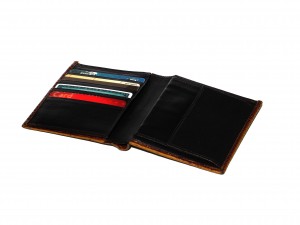 Bad credit cards continue to be offered to businesses and consumers with poor credit. These cards feature high interest rates and fees that often eat up the low credit limits that are offered. Informed consumers should be watchful of these offers. When shopping for any credit card, it is important to be able compare the offers of the numerous available credit providers and make an informed selection.
Bad credit cards continue to be offered to businesses and consumers with poor credit. These cards feature high interest rates and fees that often eat up the low credit limits that are offered. Informed consumers should be watchful of these offers. When shopping for any credit card, it is important to be able compare the offers of the numerous available credit providers and make an informed selection.
Use the credit card chaser now to see up-to-date comparison information for secured credit cards!
The most reasonable and economical type of credit cards offered to those individuals and businesses with poor or bad credit are secured credit accounts. Secured credit cards are available through a wide variety of banks and other lending institutions.
How is a secured credit card different?
Secured cards aren’t really credit cards at all! A secured card is backed by the cardholder’s own funds, which have been placed on deposit with the card issuer’s bank. The credit limit is the amount of money the cardholder has invested or put up. In this way, the card is guaranteed.
Why would I want to put up my own money?
Simple! There are several reasons for obtaining a secured business credit card. First, for some new business owners or other small businesses, it may be the only way to get a credit card of any sort. This can happen if the applicant has no established credit history or a poor credit rating.
The second reason is that secured cards make good sense! In recent years, they have become much more popular financial tools for cash strapped Americans. Secured cards offer the same benefits as regular credit cards, but are virtually interest free, saving consumers hundreds or even thousands of dollars each year!
Has the banking industry changed in recent years?
Just like our federal government, corporations and other small businesses have run up a ton of debt over the years. Following the banking crisis and economic slow-down of the last decade, the surviving banks and other credit issuers have tightened their belts in order to increase revenues and cut down on operating costs.
Banks have also sharply restricted access to credit. No longer can consumers obtain a pocketful of cards with low interest rates and high spending limits. Unsecured loans have become outdated and many individuals have been forced to turn to credit cards to manage their short-term credit needs and to purchase necessities.
Were there some beneficial changes to credit card accounts?
Yes! In 2009, Congress passed the Credit Card Act, a package of laws pertaining to credit card issuers, aimed at protecting the rights of consumers. These new laws put a limit on interest rate hikes and extended the time for bill payment.
Credit card issuers may still increase rates, but only after providing the cardholder with 45 days written notice. Cardholders now have the right to reject changes to their accounts, opting instead to close or cancel an account and pay off any outstanding balance under the original terms of the credit agreement.
Other provisions of the 2009 bill require card issuers to clarify due dates, cap late fees and over-limit fees, and eliminate double-cycle billing. The final changes under the Credit Card Act went into effect in August of 2010.
Another important feature of the Act limits the amount of up-front fees that can be charged on sub-prime accounts (cards issued to individuals or business owners with poor credit), to 25% of the established available first-year credit limit.
Is my credit rating important?
Consumers have become all too aware of the importance of maintaining good credit and having a strong, positive credit rating. Offers for credit reports and other credit services abound. If your e-mail box isn’t stuffed with offers of new credit, it’s filled with messages and links to credit reporting agencies with information on how to obtain your current credit score.
Are businesses rated separately?
One of the most often used sources for business credit reports is Paydex, by Dun and Bradstreet. The Dun and Bradstreet name is synonymous with accurate and up-to-date business financial information. High marks by Dun and Brad, give listed businesses a leg up in the financial world.
Business credit scores with Paydex are similar to individual scores but only consider one factor; whether a business pays its bills on time and meets the creditor’s terms of payment. Credit scores range from zero to 100, with 80 and above the top scores.
A score of 70 indicates a business pays, on average, 15 days late, a score of 50, 30 days late.
For the best credit card rates available, use the credit card finder now!
Similar Articles:
- Do companies offer credit cards for people with bad credit?
- What websites will allow me to compare secured credit cards?
- What is a good estimated credit score to get credit cards?
- Do I need a secured business credit card?
- Best “Build Credit” Credit Cards
- Are there any secured credit cards for bad credit?
- Do credit card companies report late payments?








